Annual Review 2018 to 2019
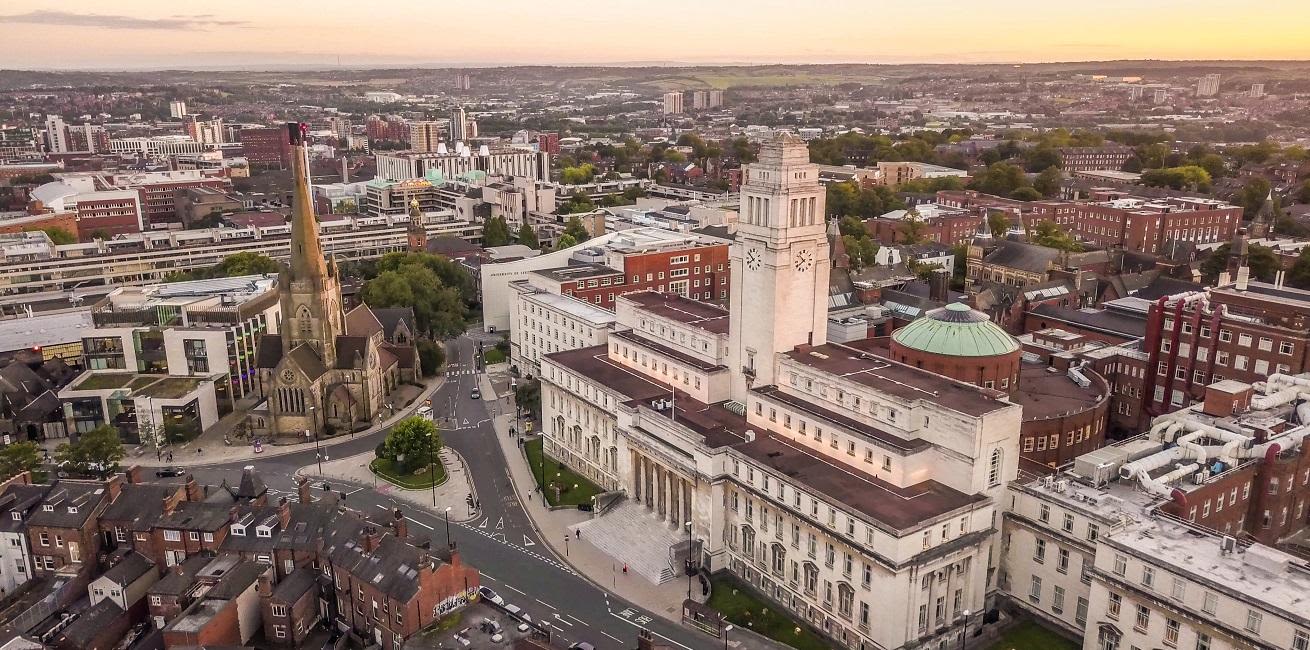
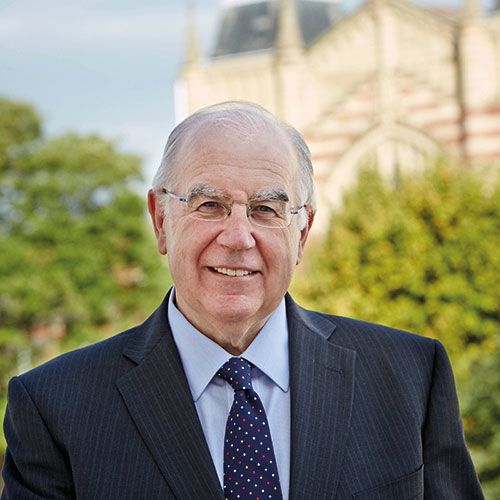
“I pay tribute to the commitment, creativity and sheer hard work of our staff, students, colleagues and partners, without whom none of the achievements outlined in this Review would have been possible.”
Introduction
Sir Alan Langlands, Vice-Chancellor
As we prepare for the dawn of a new decade, Leeds aspires to be a world-leading university that has strong local roots and is truly international in character and outlook.
We pride ourselves on being a university of size and breadth that provides an outstanding student experience, a university with strong disciplines that is at the forefront of interdisciplinarity.
For 115 years, our enduring purpose has been to increase knowledge and opportunity by providing a sector-leading education and undertaking high-quality challenge-led research for societal benefit. We do both in powerful combination, embedding education in a research-led environment and looking outwards with energy and confidence.
This is reinforced by recent external measurements, which place us in the top three in the UK for teaching quality and in the top five in the Russell Group for student satisfaction. We are also one of the universities most targeted by leading employers and have achieved success in attracting national doctoral training centres.
Leeds is third among UK universities for the value of awards from the Global Challenges Research Fund (GCRF) and the Newton Fund. We also have lead roles in a number of national research institutes, including Alan Turing (urban analytics), Henry Royce (atoms to devices) and Rosalind Franklin (new generation chemistry); and we have been successful in winning Industrial Strategy Challenge Fund awards. Many of our early career researchers have been awarded prestigious fellowships.
In addition, we maintain our place as a top 100 university in the QS World University Rankings and have made great strides forward in delivering world-changing education and research through international collaboration.
We have recently appointed three new Executive Deans who will be instrumental in building on this success.
Indeed, much of the past 12 months has been spent planning for the future, mindful of the growing importance of sustainability – academic, financial and environmental. Our emergent plans are captured in the ongoing development of our draft Vision and Strategy for 2020-30.
In the face of external volatility, we continue to stick resolutely to our core mission, promoting our education and research ambitions and our wider economic, social, environmental and cultural responsibilities, while making ambitious yet carefully targeted investments in people, infrastructure and capability.
This year, we are particularly proud to have set out ambitious steps to support the global transition to a low carbon future, not only on our own campus but in mobilising the University’s knowledge, influence and assets to support others in tackling the climate crisis.
Finally, I have recently indicated my intention to step down as Vice-Chancellor next year, after seven years in office and 46 years of continuous public service. I feel very privileged to be the Vice-Chancellor at Leeds, a great university in a great city, and I look forward with enthusiasm to the remainder of my time here.
Above all, I pay tribute to the commitment, creativity and sheer hard work of all staff and students, without whom none of the achievements described in this review would have been possible.
Excellence in research
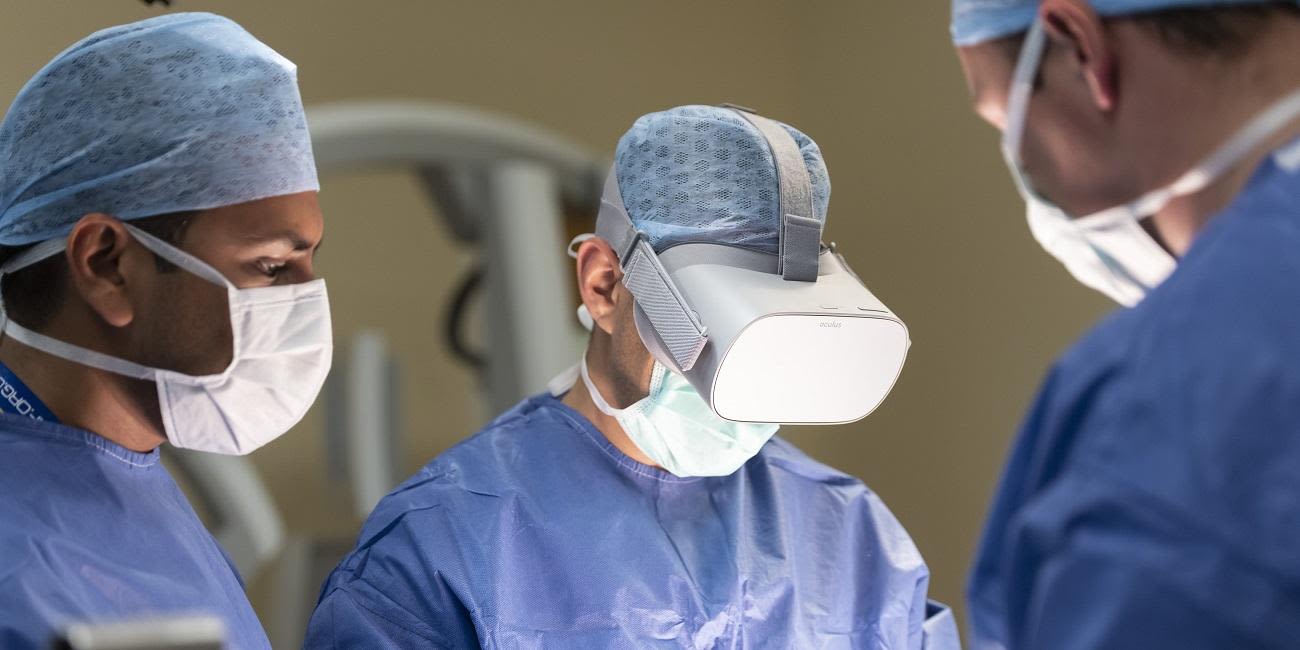
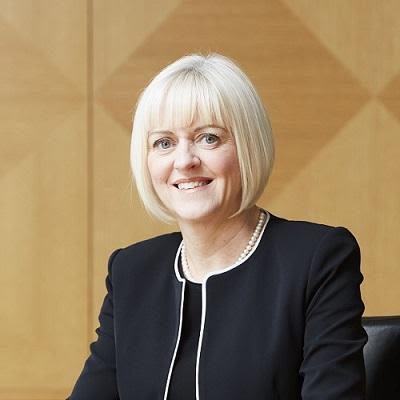
“Working in powerful combination, through fundamental and applied research, our people are tackling some of the biggest challenges facing society today.”
Introduction
Professor Lisa Roberts, Deputy Vice-Chancellor: Research and Innovation
At Leeds, we believe that research flourishes in an environment where people collaborate across disciplines. Working in powerful combination, through fundamental and interdisciplinary research, our people are tackling some of today's biggest challenges and shaping our future.
We are proud of our place in the global research community that is currently playing such a crucial role in the climate change agenda. Our climate research programme is demonstrating that satellite data is integral to measuring the rapid thinning of ice in Antarctica and providing a clearer understanding of how our rapidly changing environment is affecting glaciers and sea levels around the world.
Looking forward, we plan to build on our complementary strengths in geo-energy and climate science, in leading the transition to a low carbon future.
Partnership working is fundamental to our research and innovation activities. We continue to invest in people and facilities that enhance collaborative working, not only across our own research areas, but also with external partners to translate research and innovation into real-world solutions. Our Business Engagement Framework and innovation hub Nexus are both changing the way we collaborate with business by making it easy for businesses to access the capabilities and expertise at the University, to help them innovate and grow.
The University continues to grow and diversify its research funding to help secure a stable financial future.
The University’s research income grew 11% to £152 million and the total value of new awards grew 12% to £196 million compared to 2017-2018. The value of awards worth £1 million or more has grown 81% since 2014-2015.
Our work to tackle global issues is a significant part of our research agenda and much of this is achieved through Global Challenge Research Funding (GCRF). Leeds is third among UK universities for the value of awards from this fund and the Newton Fund, having received more than £45 million for around 170 projects in over 40 countries (July 2019). Two examples feature in our Research case studies below.
Investing in collaboration
Nexus, our new £40m innovation hub, is a home for start-ups and entrepreneurs and provides seamless access to our world-leading research, technology and facilities for businesses.
The University is also playing a leading role in a number of important national research institutes and centres.
The Leeds Institute for Data Analytics (LIDA) is leading an urban analytics programme as part of our partnership in the Alan Turing Institute. LIDA also hosts the Consumer Data Research Centre (CDRC), which recently received generous funding from the Economic and Social Research Council to continue its work until 2024. The CDRC brings together researchers from across campus to work with private and public data suppliers to ensure the efficient and safe use of data in social science research.
Our Bragg Centre for Materials Research launched in January 2019 and consolidates our leadership position in The Henry Royce Institute on the themes of Atoms to Devices. The Bragg Centre has interdisciplinarity at its heart, bringing together engineers, clinicians, biologists and physical scientists to explore and create materials engineered at the atomic and molecular level, and to work in partnership with industry to deliver solutions to real-world challenges. Renowned physicist Professor Edmund Linfield has been appointed as the Bragg Centre's first director. The Centre will be housed in a state-of-the-art building, due for completion in winter 2020.
Alongside this, we lead the next generation chemistry theme for the Rosalind Franklin Institute, boosted by our investments in medicinal chemistry, and the Astbury Centre for Structural Molecular Biology.
The £3.1m Wolfson Centre at the Bradford Royal Infirmary opened in October, bringing together health researchers and clinicians from the Universities of Leeds and Bradford with the Bradford Teaching Hospitals NHS Foundation Trust. Health researchers based at the centre will see their work applied in practice across the cities, to help provide better health, education and social care for people across Yorkshire.
More than 80 researchers from a range of University disciplines are part of our new Centre for Immersive Technologies, finding ways to harness the potential of virtual reality. They are focusing on five areas to benefit society – health, transport, education, productivity and culture.
Professor Mark Mon-Williams, Director of the Centre For Immersive Technologies, said: "Immersive technologies are a game-changer that will impact on every area of our lives. By working with a wide range of partners, from technology companies and hospitals to museums, we are ensuring that the work carried out by researchers in Leeds is making a real difference to the world."
By working with a wide range of partners, from technology companies and hospitals to museums, we are ensuring that the work carried out by researchers in Leeds is making a real difference to the world.
With new funding from UK Research and Innovation, the University announced 50 fully-funded postgraduate PhD researcher scholarships to train the next generation of artificial intelligence (AI) healthcare pioneers. Researchers from science, engineering and health backgrounds will work together in a new centre for doctoral training, focusing on the early detection, diagnosis, treatment and care of cancer. In total the University offered over 200 UKRI-funded studentships in 2018/19.
Future Fashion Factory supports innovation in the UK fashion and textiles industry. A sector-led collaborative research programme, it links textile design and manufacturing within the Leeds City Region with the creative design and retail centre of London. The universities of Leeds and Huddersfield, the Royal College of Art and the Textile Centre of Excellence in Yorkshire are all collaborators. The programme is funded by the Creative Industries Clusters Programme, managed by the Arts and Humanities Research Council as part of the Industrial Strategy.
Research case studies
Melting ice in Antarctica is contributing an increasing amount to a rise in global sea levels, according to research published in Nature by an international team of scientists led by Professor Andrew Shepherd from Leeds’ School of Earth and Environment.

Dr Anna Hogg from the Centre for Polar Observation and Modelling at the University was successful in her request to have seven areas of fast-flowing ice in the Antarctic formally named after Earth observation satellites, recognising the importance of observations from space. Dr Hogg identified that the major glaciers flowing westwards from the Dyer Plateau on the Antarctic Peninsula are thinning and flowing at rates of more than 1.5 metres a day.
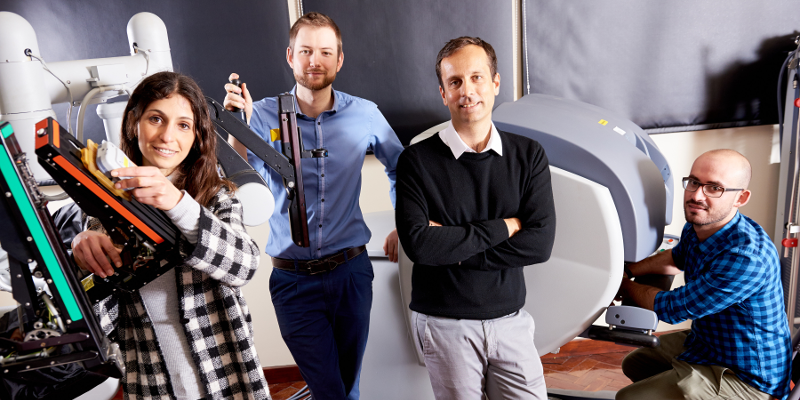
Funding from Cancer Research UK (CRUK) will lead to the first human trials of a robotics project that could revolutionise bowel cancer diagnostics and treatment. The £600,000 grant will allow a two-year feasibility study of Magnetic Flexible Endoscopes (MFE), a robotic platform that may provide a painless and easier-to-use alternative to conventional colonoscopy.
The study will be led by Pietro Valdastri, Professor and Chair in Robotics and Autonomous Systems at Leeds and Dr Venkataraman Subramanian, Clinical Associate Professor and Honorary Consultant Gastroenterologist at Leeds Teaching Hospitals NHS Trust.
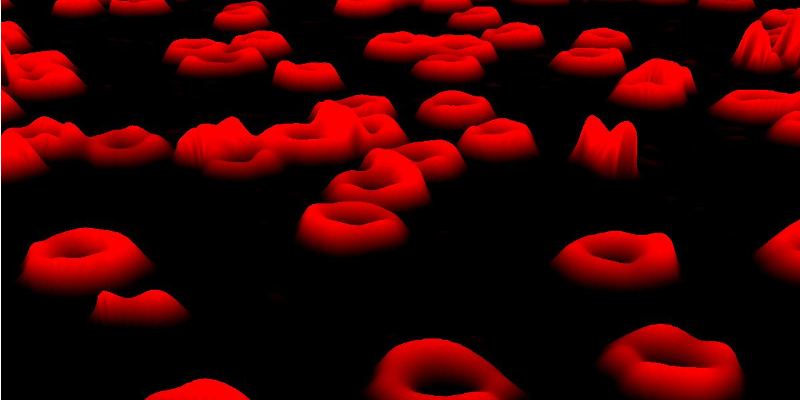
A study involving an international team showed that viruses retain their cancer-killing ability even when injected into the bloodstream. The research findings could see viruses used to treat many more patients, a wider range of cancer types and with minimal side effects. The study was led by Dr Elizabeth Ilett and Dr Rob Berkeley from the University of Leeds and Professor Alan Melcher from The Institute of Cancer Research, London.
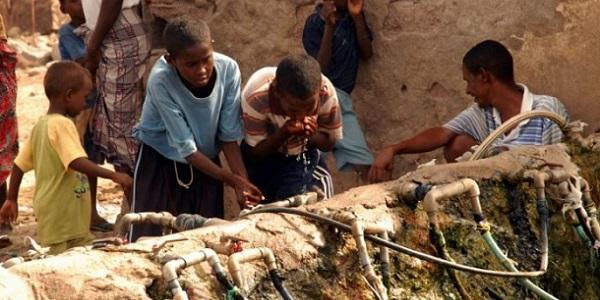
Leeds researchers were partners in two pioneering international collaborations to develop new approaches to the global challenges of improving water security and urban disaster risk management. The projects are part of an ambitious UK Research and Innovation (UKRI) initiative, as part of the Global Challenges Research Fund (GCRF). A team at the University is a key partner in the £17.7 million Water Security and Sustainable Development Hub, an international partnership of 55 organisations from 12 countries.
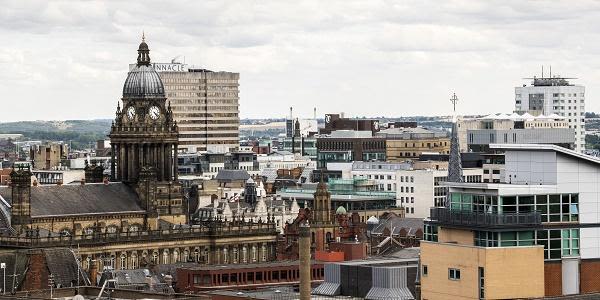
A major social science project is examining the implications of Brexit on race relations, new migrations and Northerners’ sense of place and belonging. Led by Professor Adrian Favell from the School of Sociology and Social Policy, 'Northern Exposure: Race, Nation and Disaffection in "Ordinary" Towns and Cities after Brexit' was awarded £750,000 by the Economic and Social Research Council (ESRC) and runs until May 2021.

The University won funding from the Arts and Humanities Research Council, Paul Hamlyn Foundation and Arts Council England to become home of the UK’s first Centre for Cultural Value. The centre will enhance understanding of the difference arts and culture make to people’s lives and society, by making research more accessible and by supporting the cultural sector to capture and evaluate its value. It is led by Professor Ben Walmsley from the School of Performance and Cultural Industries.
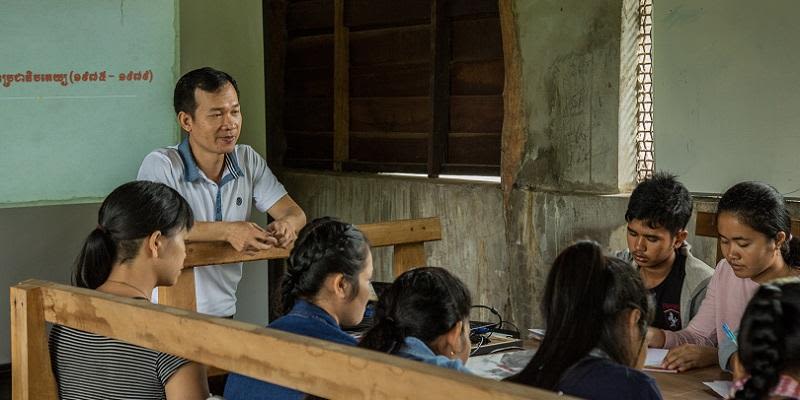
Our researchers continue to lead Changing the story, a four-year GCRF-funded project to support young people affected by conflict across the global south. It aims to develop clear, evidence-based understanding of how civil society organisations (including museums, heritage organisations, community participatory arts and activist groups) can be most effective in promoting social reconciliation, equality and human rights in the aftermath of conflict. The collaboration involves universities, INGOs, artists, grassroots civil society organisations and young people and, in 2018-2019, 17 project teams across 12 countries.
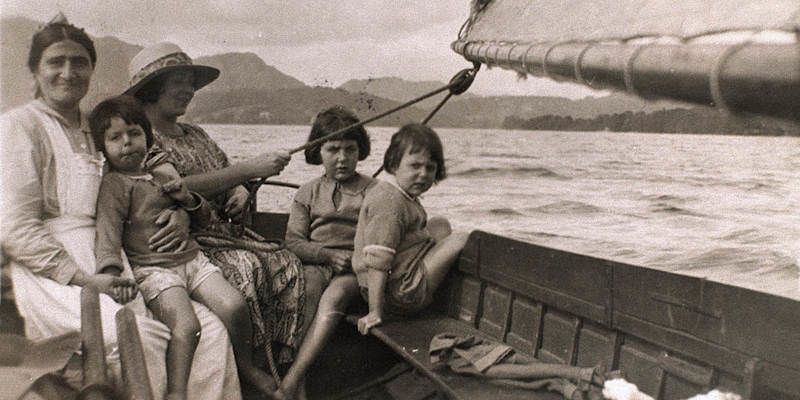
Two grants are opening up access to the University Library's Special Collections, enabling artists and researchers to examine and explore important cultural artefacts. Through funding from Rothschild Foundation Hanadiv Europe, the Roth Collection of rare Jewish artefacts is being made available online, including objects that tell poignant stories about the Holocaust. Through Arts Council England funding, artist Karen Babayan is exploring how friendship with a family from Aleppo in Syria influenced the work of 20th century author Arthur Ransome.
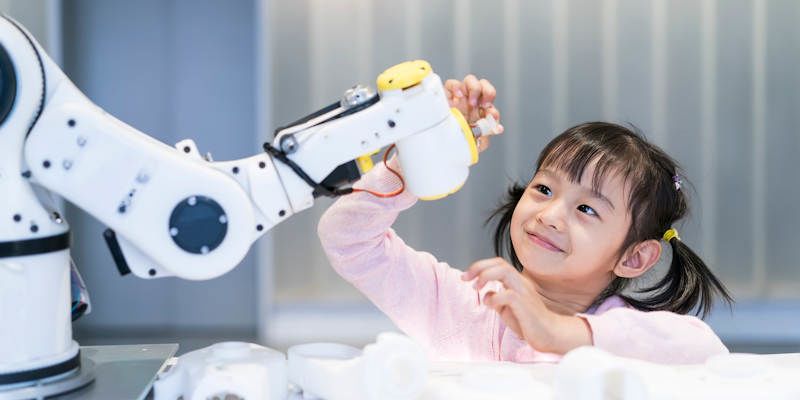
We are leading a £1.5m global interdisciplinary project to understand how technology and disability interact. Researchers in arts, humanities, design, engineering and robotics from several UK and overseas universities will explore assistive technology and how society represents disability. The five-year project is funded by the Wellcome Trust Collaboration Award in Humanities and Social Sciences.
Excellence in education
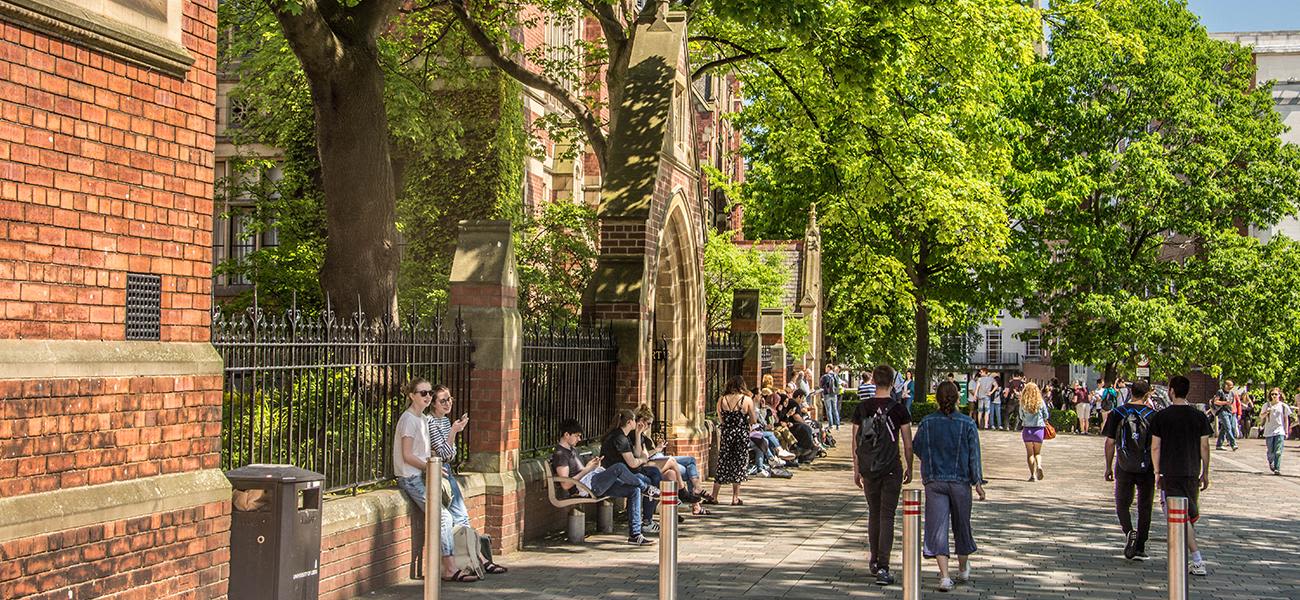
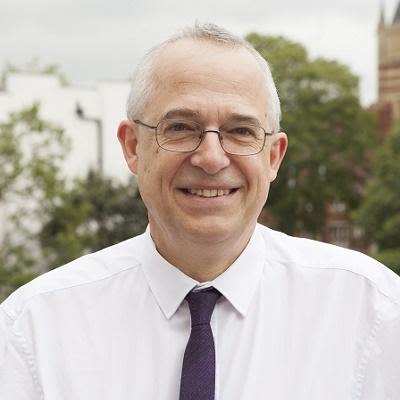
“Investing in teaching and finding the best people to share their expertise is crucial, and so is the learning environment.”
Introduction
Professor Tom Ward, Deputy Vice-Chancellor: Student Education
We welcomed more than 38,000 undergraduate students and postgraduates last year, each one bringing their own aspirations and a wealth of energy, ideas and insights to the University community.
Through 2018-2019, the University continued to build on its strengths, working with our students to help them achieve their aspirations while opening up opportunities they never thought possible. I am proud that we continue to offer our students exceptional teaching quality in an environment characterised by partnership.
Investing in teaching and employing the best people to share their expertise is crucial, and so is the learning environment. As well as developments in facilities, such as the new teaching space for the Leeds University Business School, we are harnessing the latest technology to develop flexible, innovative ways for students to study. Digital learning offers huge potential to open up access to higher education.
All this hard work has been reflected in student feedback in the National Student Survey, placing us in the top three for teaching and joint first for learning resources among the Russell Group of research-intensive universities.
Once they graduate, our students will enter an increasingly competitive, global employment market. We continue to seek out opportunities and partnerships to broaden their experience, including nurturing overseas links and volunteering opportunities. This year, a major survey by High Fliers Research showed that students at the University of Leeds are in the UK’s top ten most targeted by leading employers.
The Leeds experience not just about academic success. There are many opportunities for personal development through volunteering, research and representation roles under the leadership of the Leeds University Union. Alongside this, we have a strong foundation in student wellbeing provision and this year we have enhanced this through initiatives to improve access to support when it’s needed.
Our cohort of high-quality students continues to grow and, as our results show, so do their levels of attainment. Attracting and retaining students with the greatest ability is also about making sure young people from a range of backgrounds realise their academic potential. Our widening participation scheme Access to Leeds is a well-established route into study and this year we signed the Stand Alone pledge to offer support to students estranged from their families, in areas such as finance, accommodation, mental health and wellbeing, and transition.
As we look to the future, the student voice is helping shape the University's new Strategy and Strategic Plan, which will set out priorities for 2020-2025. The Leeds University Union Executive Education Officer has contributed to the core strategy group steering the work around the strategy development and consultation. As well as this, engagement events have been held with undergraduates and postgraduates to inform the strategy consultation. Students will continue to be involved as the strategy develops and is implemented.
We are also proud that Leeds University Union was not only the first students' union in the UK to be awarded ‘excellent’ status under the National Union of Students’ Quality Accreditation Scheme, but is now also the first to retain this accolade.
Featured stories: education
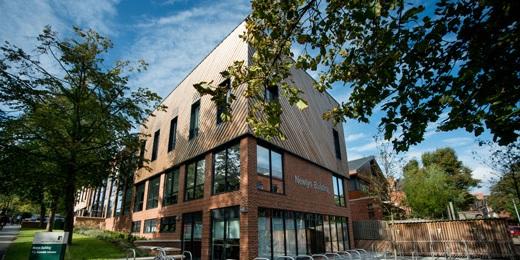
We unveiled the first step in a £75m transformation project for Leeds University Business School (LUBS) and the School of Law. The Newlyn Building embraces innovative technologies and offers high-quality teaching spaces and facilities and is part of an investment programme on the western campus. It was named after respected University of Leeds economist Professor Walter Newlyn.
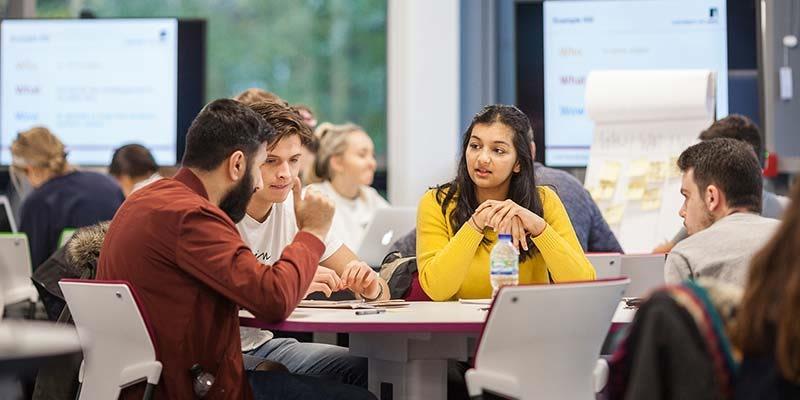
The Student Lifecycle Programme – a four-year transformation programme aimed at improving the ways of working we use to manage the student experience - received a £46.7 million investment boost. The funding for the next four years will be used to join up working, reduce complexity in our systems and processes and create consistency across the University, freeing up staff time to focus on enhancing the student experience.
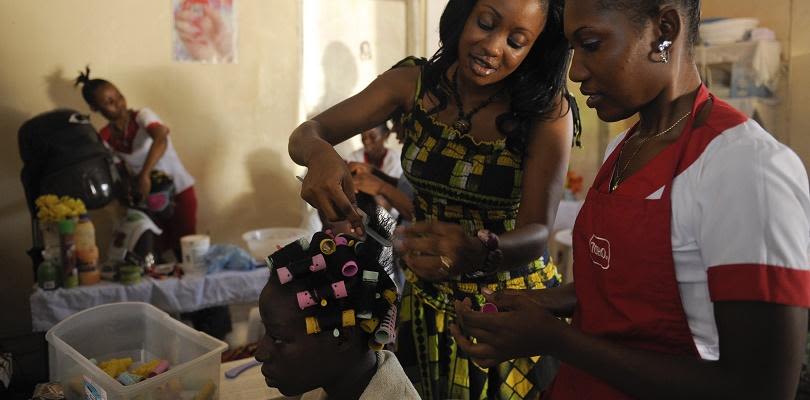
Our award-winning Digital Education Service launched the groundbreaking online education programme Goldman Sachs 10,000 Women. Freely available, it helps female entrepreneurs explore opportunities for growth, financial planning, marketing and leadership within their businesses. Within 12 months of launching, 'Grow Your Business with Goldman Sachs 10,000 Women' attracted over 23,000 enrolments from 169 countries.

The University secured £500,000 from the Institute of Coding (IoC) to create new online courses to support the next generation of digital talent. Through the funding, we are leading a consortium that has launched a new programme called 'Reframe your Career with Digital Skills from IoC'. The programme of 15 short courses focuses on digital employability skills for people aged 18-25 and those returning to the workplace and is delivered through digital education platform FutureLearn. Diversity and flexibility is at the forefront of the design.
Carol Elston, Head of Leeds’ Digital Education Service, said: "We know recruiters have identified certain gaps in digital skills, so we’re designing these short online courses to meet the needs of employers."
We know recruiters have identified certain gaps in digital skills, so we’re designing these short online courses to meet the needs of employers.
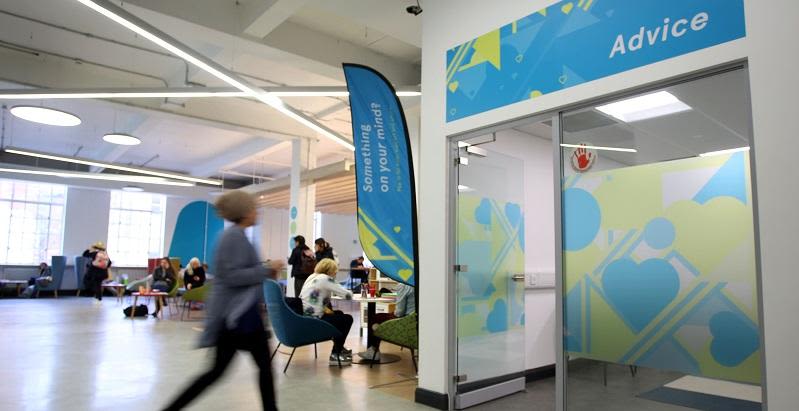
Student Counselling and Wellbeing received an increased level of University funding to address the growing need for support. This means we have been able to diversify our approach and increase the number of practitioners in mental health, counselling and wellbeing roles. We have also increased the number of appointments for initial assessments for students experiencing difficulties.
There is more self-help and online support available, including round-the-clock peer and professional support from Big White Wall online resource. Our groups and workshops programme has also been substantially enhanced over the academic year 2018-2019. Working in partnership with Leeds University Union, same day appointments are also available with the counselling and wellbeing team.
International Leeds
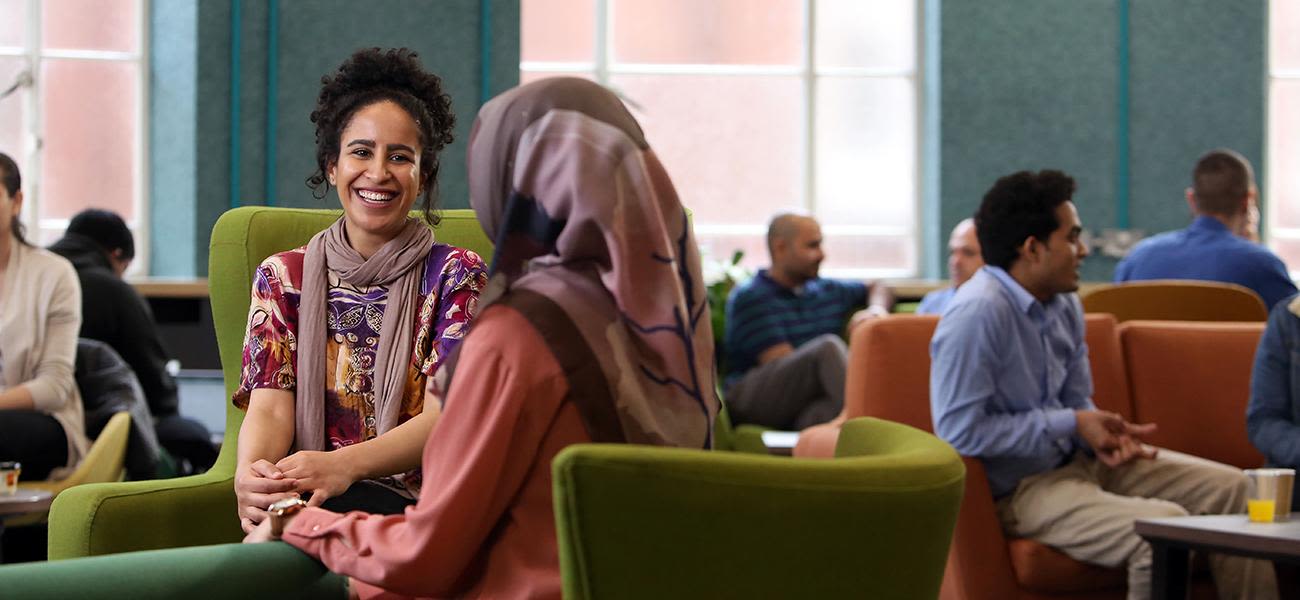
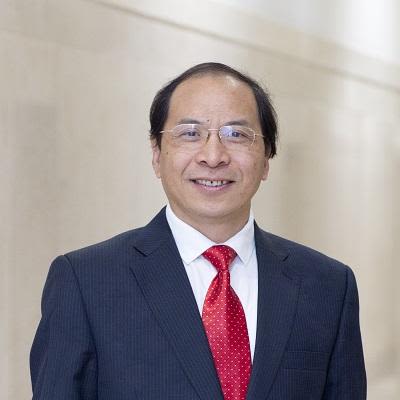
“I believe the key to developing a compelling international strategy is to support world-class individual collaborations and build strategic institutional and corporate partnerships to enrich the student experience and create world-changing research and innovation.”
Introduction
Professor Hai-Sui Yu, Deputy Vice-Chancellor: International
Building our international reach, reputation and impact is at the heart of our strategy for Leeds. I believe the key to developing a compelling international strategy is to support world-class individual collaborations and build strategic institutional and corporate partnerships to enrich the student experience and create world-changing research and innovation.
I’m delighted that the University continues to rank among the top 100 globally and increased its position, for the third year in succession, to 15th in the UK (QS World University Rankings 2020). We’re also among the 40 most international universities (Times Higher Education 2019), moving up the ranking for the second consecutive year.
In the past year we have signed memoranda of understanding with Karlsruhe Institute of Technology in Germany, Asan Medical Center, South Korea and several partners in India. All these partnership agreements will bring closer collaboration and support research, the student experience and knowledge exchange activities.
Existing partnerships continue to grow and flourish too. There are exciting cooperations in development with Chinese partners, including Zhejiang University, Nanjing University, Wuhan University, East China University of Political Science and Law (ECUPL) and Shanghai Jiao Tong University (SJTU). We’re also looking forward to seeing the first graduates from our joint school of Engineering with Southwest Jiaotong University, China, in 2020.
On campus we are welcoming more international students and postgraduate researchers than ever before – around 11,000 from more than 170 countries (including exchange students). This includes participants in Leeds International Summer School, whose numbers have more than doubled in the last year to nearly 300. The summer school combines world-class tuition with academic field trips, cultural excursions and social events.
As our international student body grows, we recognise that students from overseas need specific support. We launched our popular Feeling at home in Leeds online induction to help students settle in and make the most of their time here, featuring student stories and interactive sections on navigating cultural differences, finding support, discovering opportunities, making friends and achieving academic and personal goals. Intercultural workshops designed for taught postgraduate induction programmes have helped students from different backgrounds get to know each other and focus on the intercultural skills they can develop during their time at Leeds. We are also excited to be a partner in a project to develop a sector-wide approach to improving support for international students’ mental health.
The new Go Global strand of the University's existing Students into Schools scheme is aimed specifically at international students, as is Leeds University Union's new Global Community programme.
The strength and diversity of our student body is echoed in our alumni network of more than 270,000 people from more than 190 countries – one of the biggest of any UK university. Their generosity and allegiance to Leeds continues to benefit current students in a myriad ways. Our fully funded Leeds to South Korea Leadership Programme is one exciting new example.
This exchange of international experience and understanding is at the core of an international university. We were pleased that nearly one-third of our UK undergraduates graduating in 2018 had an international experience (working or studying abroad, visiting other countries as part of a module and international co-curricular opportunities) during their time at Leeds. Besides growing as individuals, we believe this best equips them for success in a competitive global employment market when they leave us.
We have more international colleagues at the University too – nearly 1,600 people from about 100 different countries. Our international buddy scheme reflects our determination to keep finding new ways to help them settle into life at Leeds.
Featured stories: international
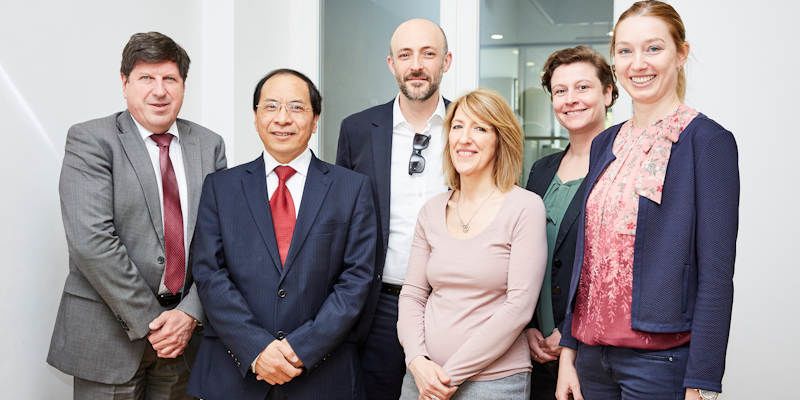
In March we signed a partnership agreement with the Karlsruhe Institute of Technology in Germany, our long-standing collaborator on atmospheric science (pictured). We signed an agreement with Asan Medical Center (AMC), affiliated with the University of Ulsan and the largest hospital in South Korea, to cement a developing research relationship focused on joint projects in the Schools of Molecular and Cellular Biology and Chemistry. We are significantly developing our partner network in India, with agreements with three high-quality partners: the Indian Institute of Management (IIM), Calcutta, SRM Institute of Science and Technology Chennai and Thapar Institute of Engineering and Technology (TIET), Patiala.
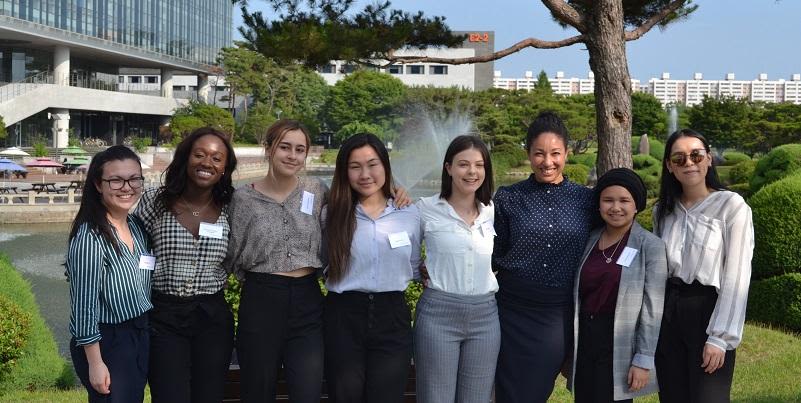
Leeds students on the KAIST campus. Credit: Sophia Liu
Leeds students on the KAIST campus. Credit: Sophia Liu
Our first Leeds to South Korea Leadership Programme took place in June 2019, with 14 students and staff travelling from Leeds to KAIST (Korean Advanced Institute of Science and Technology) in South Korea. This fully funded programme, made possible through the generosity of alumni Dr and Mrs Byiung J. Park, allowed students from different disciplines, study levels and backgrounds to take part. Leeds and KAIST students together undertook an immersive and experiential leadership programme, benefiting from leadership tuition, access to world-leading organisations and technologies, and a rich intercultural experience. Next year it's expected the selected Leeds and KAIST students will spend a week in South Korea and a week in Leeds.
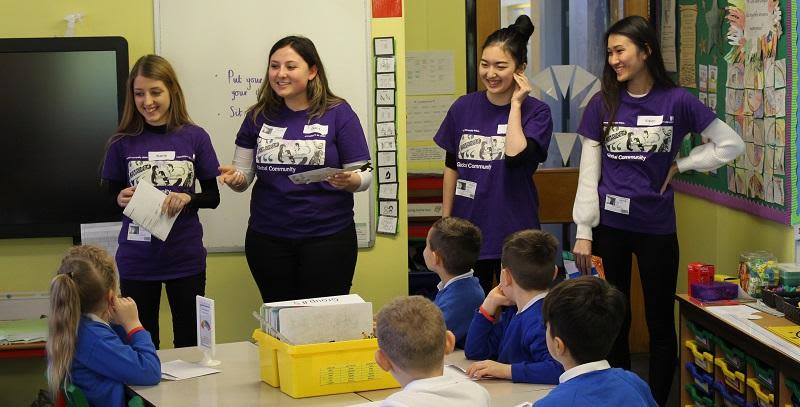
Among the initiatives giving international students the chance to get involved in their local community and enhance their employability is the Students into Schools Go Global scheme, which sends international student volunteers into local schools to run globally-themed after-school clubs. For some of our international students, Students into Schools Go Global was a highlight of their time at Leeds.
A new Global Community Programme in Leeds University Union (LUU) fosters international student engagement through creative and inclusive activities, which relate to both specific cultural celebrations and broader opportunities for students to forge new friendships and connections. Global Bring and Share events are now part of the LUU events programme.
The number of participants in Leeds International Summer School more than doubled.
The University in society
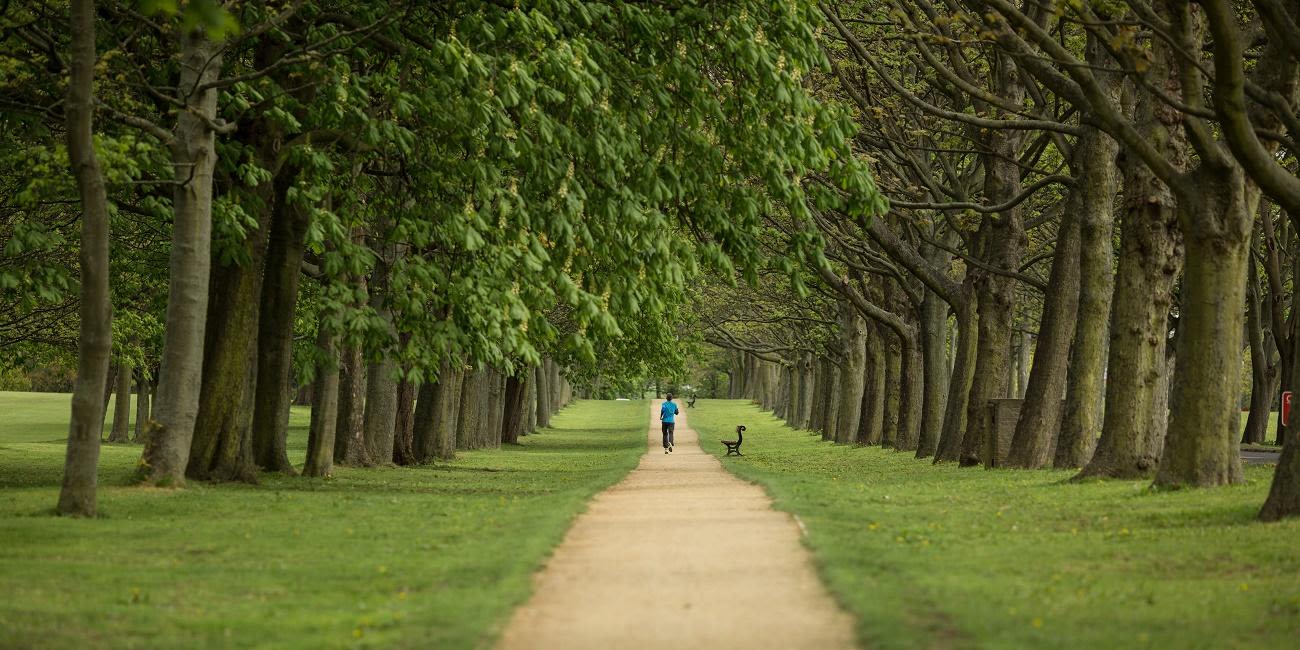
The University is committed to making a difference to society, culture and the economy through our research and innovation and our student education. We are proud of our civic roots in Leeds and the wider region, and, as we grow we have a keen sense of our responsibility to the world around us, whether that’s on our doorstep or across the globe.
Our partnerships and relationships with a wide range of organisations are key to this: from small businesses and charities to large stakeholders such as Leeds City Council. This year, several new initiatives bringing job creation, and exciting economic and cultural opportunities are helping contribute to the wellbeing and strength of the city region. Alongside this, acutely aware of our responsibilities towards the future of our planet, we have set ambitious goals in environmental sustainability.
Working with business
Business Engagement Framework
The University's new Business Engagement Framework (BEF) is about helping businesses to thrive, innovate and grow. Specialist teams in Commercialisation, Corporate Relationships, Research and Innovation Development and Nexus will work closely with academic leads to find ways to bring their research to market, secure funding and develop partnerships with industry, ranging from small businesses and start-ups to large sector leading organisations.
Professor Lisa Roberts, Deputy Vice-Chancellor: Research and Innovation, said: "The BEF integrates and powers the teams supporting our academic community to nurture their relationships with business."
The BEF integrates and powers the teams supporting our academic community to nurture their relationships with business.
Partnering with the CBI
The University partnered with the Confederation of British Industry to launch a major report on The Changing Nature of R&D, highlighting the 'new frontier' advanced data analytics opens up for business research and development.
Having won a place on the renowned MIT REAP programme the Leeds City Region team will host the next stage in the global programme, welcoming over a hundred leaders from government, business, finance and universities to the city in January 2020.
The MIT Regional Entrepreneurship Acceleration Program (REAP) supports regions to accelerate economic growth, job creation and social change.
The Leeds City team includes leaders from the University of Leeds and Nexus, KPMG, Arup, Leeds City Council, the Leeds City Region Enterprise Partnership (LEP) and West Yorkshire Combined Authority, Leeds Academic Health Partnership, and entrepreneurs Adam Beaumont, David Aspin and Ben Ziff.
Professor Lisa Roberts, Deputy Vice-Chancellor: Research and Innovation, Leader of the Leeds City Region team, said: "MIT identified this region as having significant strengths to support the UK economy. This is our chance for Leeds and the City Region to share our ideas and shine on an international stage."
MIT identified this region as having significant strengths to support the UK economy. This is our chance for Leeds and the City Region to share our ideas and shine on an international stage.
Our cultural contribution
We continued to build on our cultural contribution, strengthening existing partnerships and forging new ones to bring a varied and accessible programme to the region.
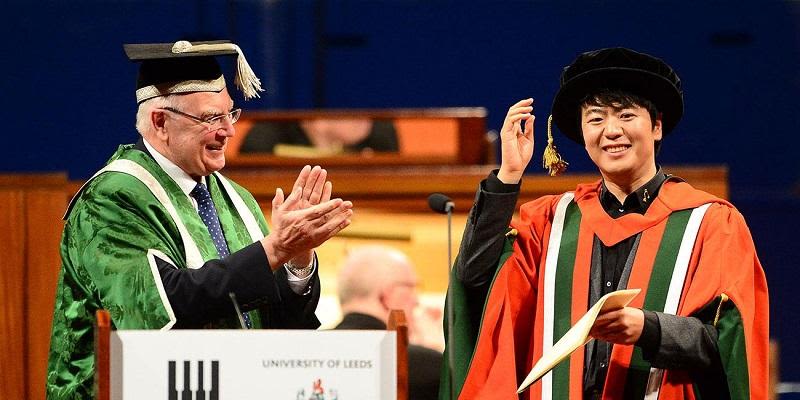
The University became Principal Partner of Leeds International Piano Competition, one of the most important classical music competitions in the world. We have played a key role in the triennial event since the first competition 55 years ago, but our expanded partnership allowed it to be broadcast online to a wider international audience for the first time. In recognition of his contributions to global culture and education, the University awarded an honorary degree to Lang Lang. The internationally renowned Chinese pianist is Leeds International Piano Competition’s Global Ambassador.
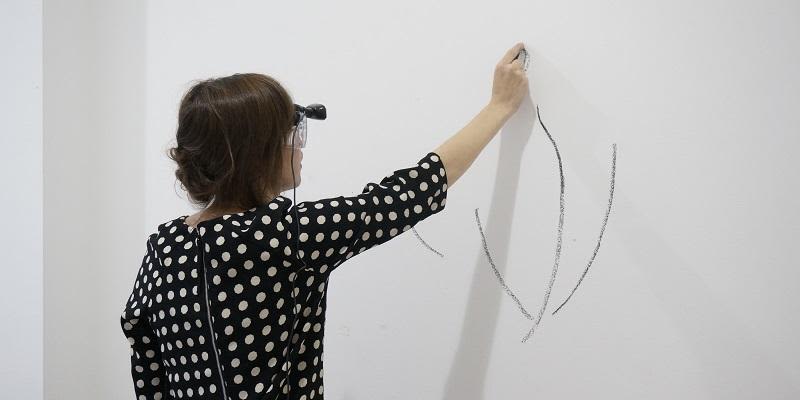
The £15,000 DARE Art Prize, organised by our Cultural Institute and Opera North as part of the University’s unique DARE partnership, was awarded to Anna Ridler, an artist who explores the meeting of human perception and Artificial Intelligence. The DARE Art Prize was launched in 2016 and challenges artists and scientists to work together. Anna is working with our scientists in the Language and Memory Laboratory and the School of Psychology to explore the function of memory. The DARE partnership was founded in 2007 and connects academic research and cultural ambition in the arts, engages sectors, organisations and the public, and nurtures skills among practitioners.
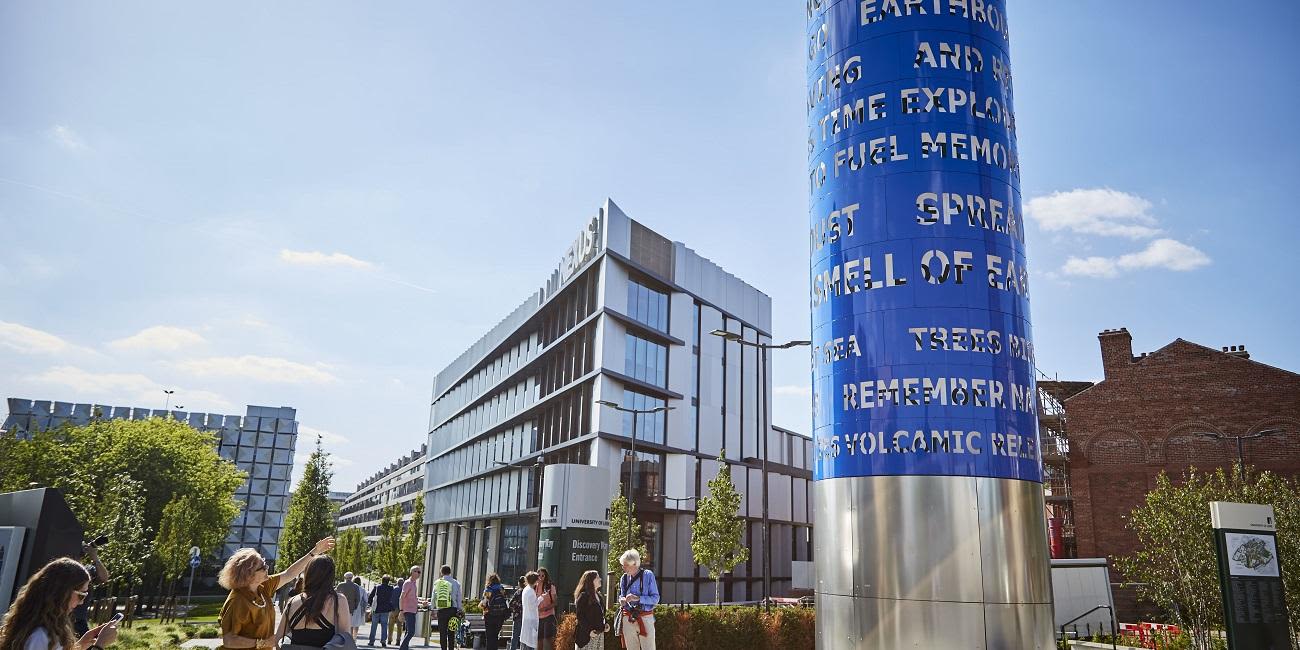
Over 200 students took part in the first Yorkshire Sculpture International, working with the Henry Moore Institute, Leeds Art Gallery, The Hepworth Wakefield and Yorkshire Sculpture Park. Our role also included academic talks and commissioned artwork for campus – Converse Column by Liliane Lijn.
Over 200 students took part in the first Yorkshire Sculpture International, working with the Henry Moore Institute, Leeds Art Gallery, The Hepworth Wakefield and Yorkshire Sculpture Park. Our role also included academic talks and commissioned artwork for campus – Converse Column by Liliane Lijn.
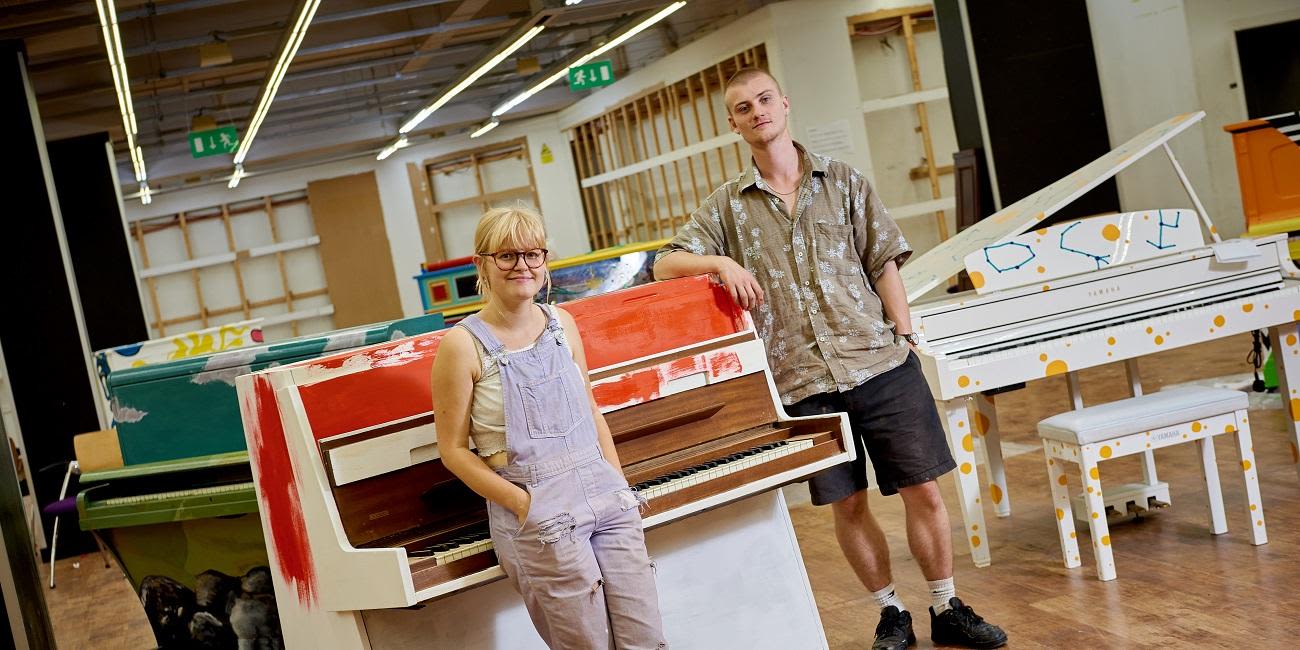
Our graduates customised pianos for the first Leeds Piano Trail: 12 instruments placed around the city for public use. Along with Leeds Piano Festival, it was part of an expanded programme for the Leeds International Piano Competition, which we help host as a principal partner every three years.
Our graduates customised pianos for the first Leeds Piano Trail: 12 instruments placed around the city for public use. Along with Leeds Piano Festival, it was part of an expanded programme for the Leeds International Piano Competition, which we help host as a principal partner every three years.
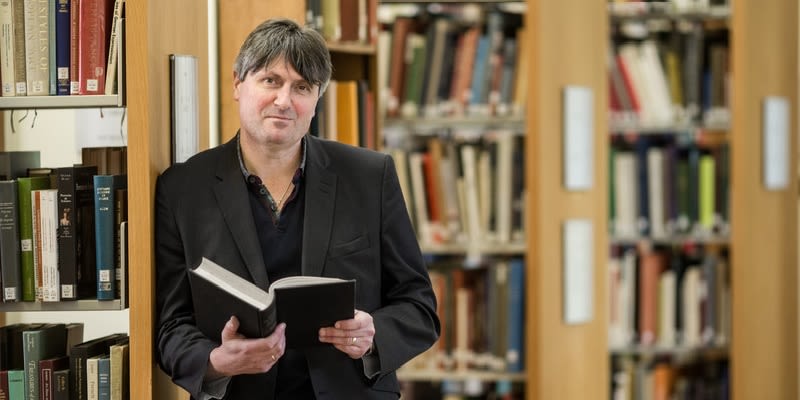
20 academics from the University took part in Ilkley Literature Festival in 2018, our largest input into the programme so far. The University’s Professor of Poetry Simon Armitage was also part of the programme.
20 academics from the University took part in Ilkley Literature Festival in 2018, our largest input into the programme so far. The University’s Professor of Poetry Simon Armitage was also part of the programme.
Sustainability
Building on previous initiatives, including signing the Clean Air Leeds Pledge, the University has taken several bold steps.
The University adopted a Climate Active Strategy to guide the approach to responsible investment. As a key outcome of this strategy, the organisation has fully divested from significant fossil fuel extractors.
We have also set out seven principles to help tackle the climate crisis including ambitious targets to reduce carbon emissions. Initiatives to help us meet these targets include Blueprint, a new engagement programme that helps our academic schools and other services create a bespoke sustainability action plan.
Alongside this, we have committed to phase out single-use plastic on campus by 2023.
Sir Alan Langlands, Vice-Chancellor, said: "The University has a proud academic record as a leader in the field of climate research and a strong commitment to sustainability on campus and in the wider community we serve. We are committed to leading by example in the fight against climate change."
The University has a proud academic record as a leader in the field of climate research and a strong commitment to sustainability on campus and in the wider community we serve. We are committed to leading by example in the fight against climate change.
Honours and awards
Professor of Poetry Simon Armitage received the Queen’s Gold Medal for Poetry in 2018. He went on to be named national Poet Laureate in 2019.
Professor of Cancer Medicine Peter Selby was president of the European Cancer Concord when it won the European Health Award in 2018. The winning project involved creating a cancer patients’ Bill of Rights, aimed at driving improvement in treatment.
Professor Mark Birkin, Director of the Leeds Institute for Data Analytics, was announced as leader of the Alan Turing Institute’s new urban analytics research programme.
New Year Honours 2019
Professor Stephen Mobbs, of the National Centre for Atmospheric Science, was awarded an MBE for services to Atmospheric Sciences.
Simon Kay, Honorary Professor at the University's Leeds Institute of Medical Research, was awarded an OBE for services to complex reconstructive hand surgery, including hand transplantation.